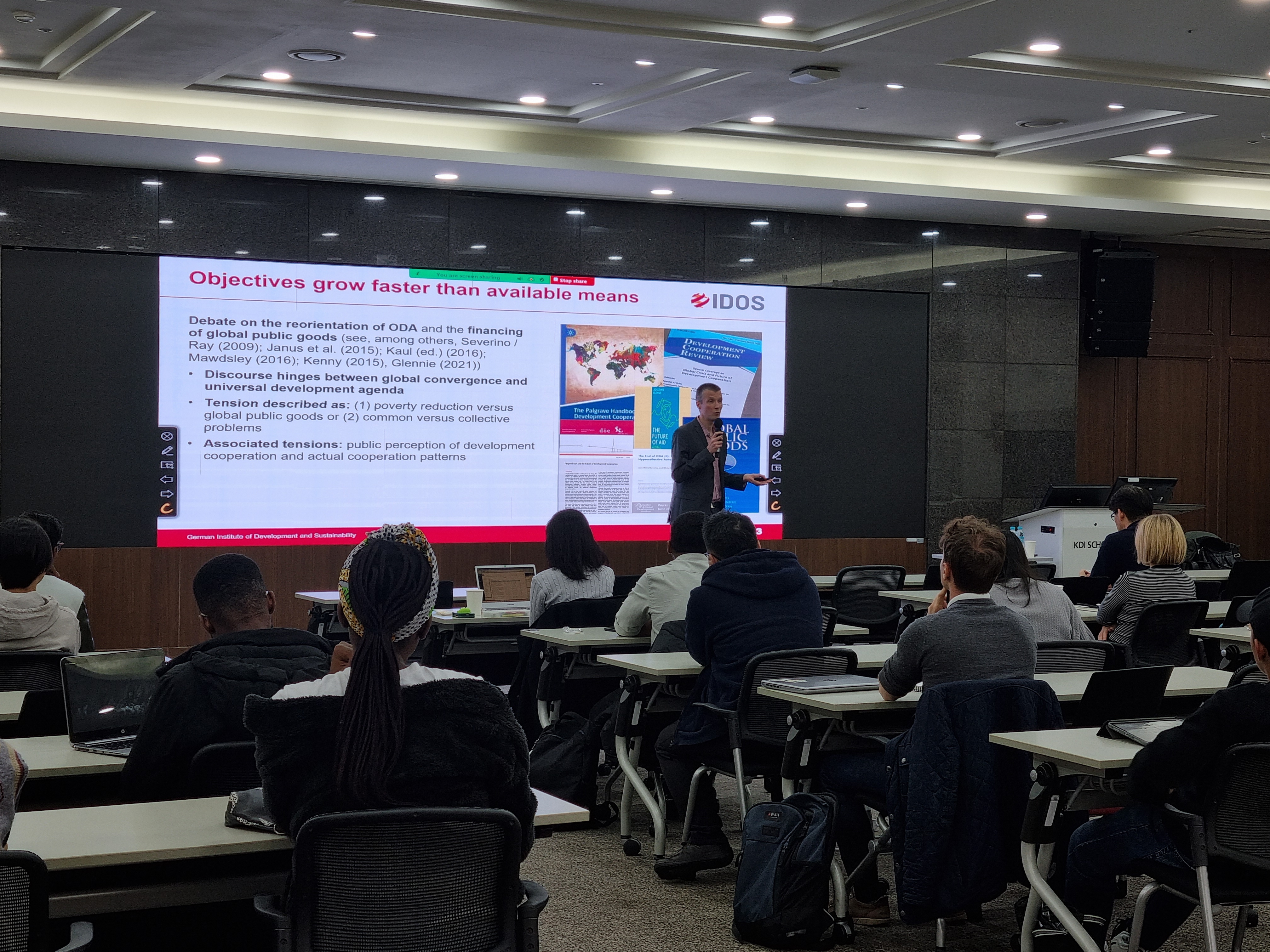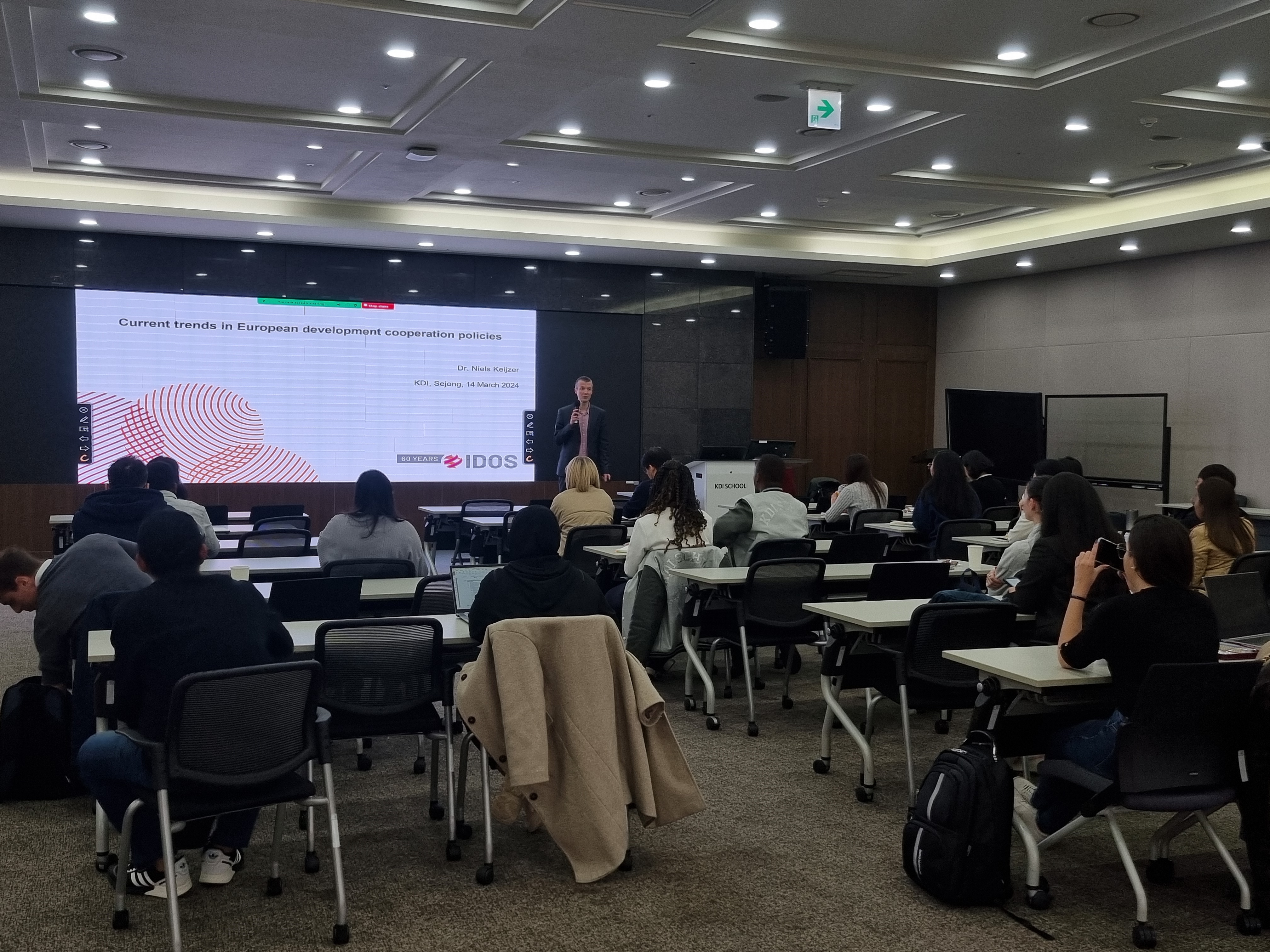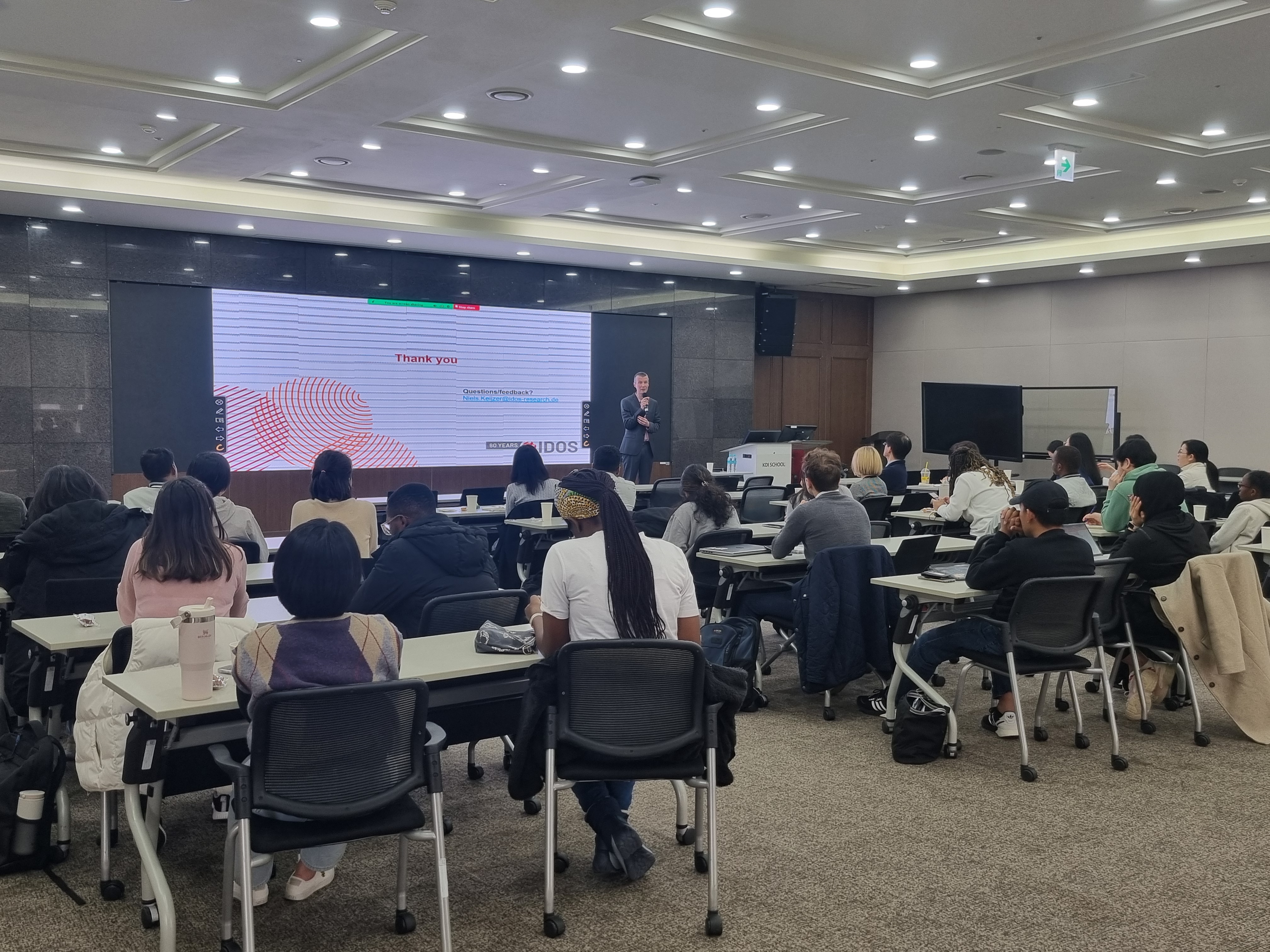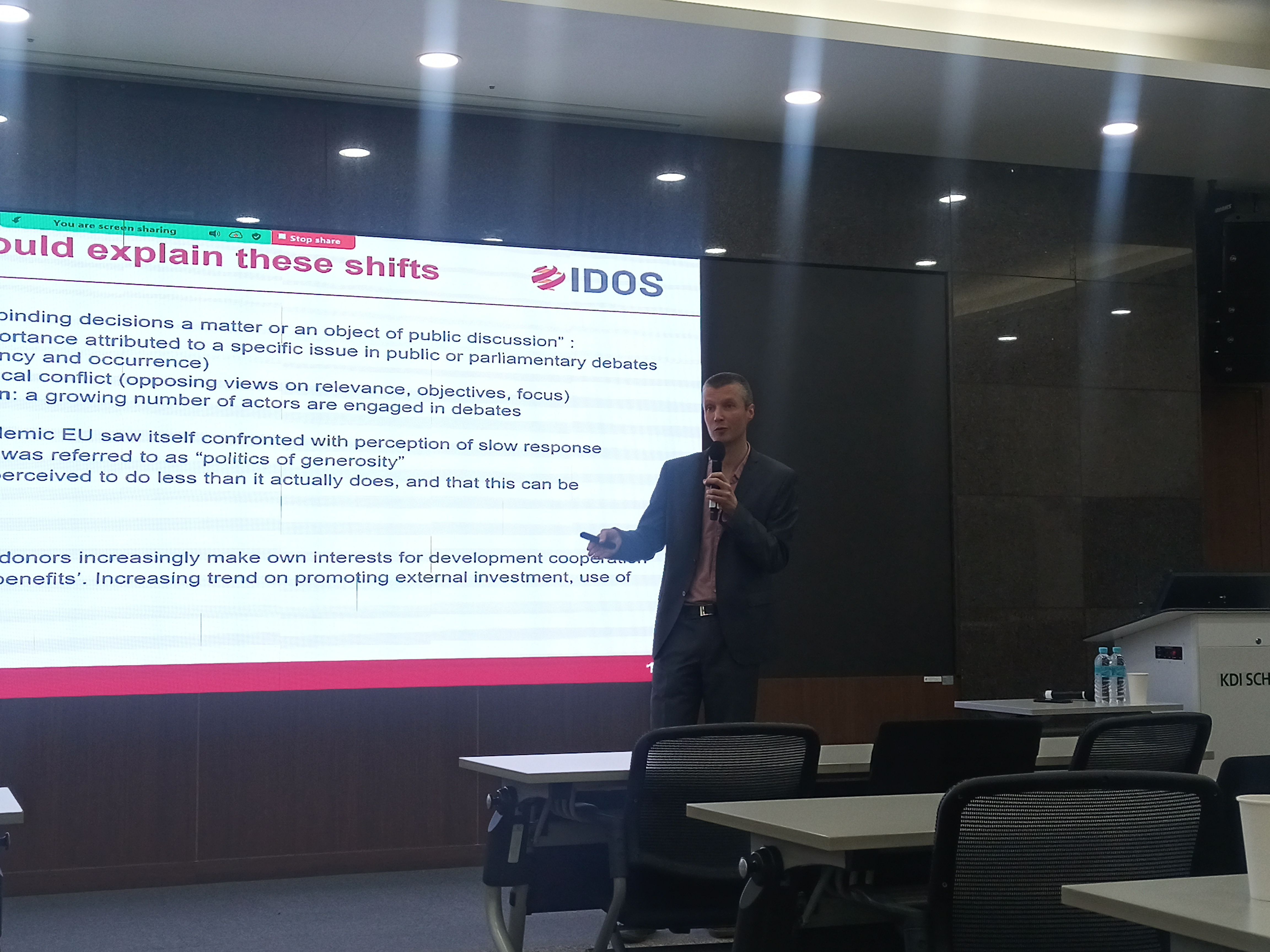
Exploring KDIS Special Lecture: Key Takeaways from Dr. Niels Keijzer's Exploration of Current European Development Trend
- Date 2024-03-22 08:57
- CategoryResearch and Education
- Hit388
In a captivating lecture delivered at the KDI School, Dr. Niels Keijzer, an expert from the German Institute of Development and Sustainability, provided a deep analysis of current European development trends, focusing particularly on the European Union (EU) and Germany. The lecture, attended by academics, policymakers, and students alike, offered valuable insights into various aspects of EU development dynamics and the challenges it faces.

He underscored the pressing need for cooperation among EU member states to tackle critical challenges, such as migration and economic issues. He emphasized the EU's commitment to inclusivity in decision-making processes, ensuring that no single country dominates discussions, thereby fostering equitable participation and addressing the diverse concerns of member states effectively.
Central to the discussion was the pivotal role of the European Parliament in shaping EU policies, especially concerning the European Official Development Assistance (ODA) budget. Dr. Keijzer highlighted how decisions in this regard are collaboratively made by member states and the Parliament, stressing the importance of democratic representation and shared decision-making within the EU.

Furthermore, he emphasized the influence of external factors on the EU's development agenda, citing examples such as the increase in refugees in 2015 and the establishment of an EU trust fund for Africa. This highlighted the EU's adaptability and its commitment to addressing global challenges beyond its borders. Additionally, the lecture shed light on the shift towards short-term responsiveness in the face of various international crises like the Ukraine war, financial downturns, migration, climate change, and the COVID-19 pandemic. Dr. Keijzer stressed the need for a more agile and adaptive approach to development cooperation, moving away from traditional long-term planning towards immediate and targeted interventions. This dual emphasis on external influences and the necessity for adaptable responses underscores the dynamic nature of the EU's development strategies.

Moreover, Dr. Keijzer highlighted the increasing politicization of development cooperation, stressing its growing relevance on the political stage and the critical need for consensus-building to achieve impactful policy outcomes. He also discussed the European Commission's Global Gateway initiative, introduced in September 2021. This initiative aims to enhance Europe's connectivity with the world through sustainable infrastructure investments, positioning the EU as a strategic partner in global connectivity endeavors.
Upcoming political events, including European Parliament elections, UN elections, and elections in India and EU member states, were identified as significant factors influencing development policy decisions. These events are poised to shape the future direction of development cooperation within the EU and impact decision-making processes. Additionally, Germany's substantial ODA budget, one of the largest among G7 countries, was highlighted, amounting to approximately US$ 35.6 billion in 2022. This underscores Germany's dedication to supporting global development efforts.

Reflecting on Dr. Niels Keijzer's presentation, Ayesha Sultana, MDP student from Pakistan, said, “I found it insightful how Europe devises their development policy and what factors they keep in mind. I came to know that ODA is one of the main driving factors of the policy and which countries contribute to this assistance."
Similarly, Mohsen Gholami, another MDP student, from Afghanistan said; “Dr. Niels Keijzer's presentation impressed me, as it provided valuable insights into the EU's dedication to global development and humanitarian aid”.
Overall, Dr. Niels Keijzer's lecture provided a comprehensive understanding of European development dynamics, emphasizing the importance of cooperation, inclusivity, and adaptability in addressing contemporary challenges and shaping future policy directions. Attendees left the lecture with a deeper understanding into the intricacies of EU development policy and its global implications.
2023 Fall / MDP / Pakistan
qamerali@kdis.ac.kr
